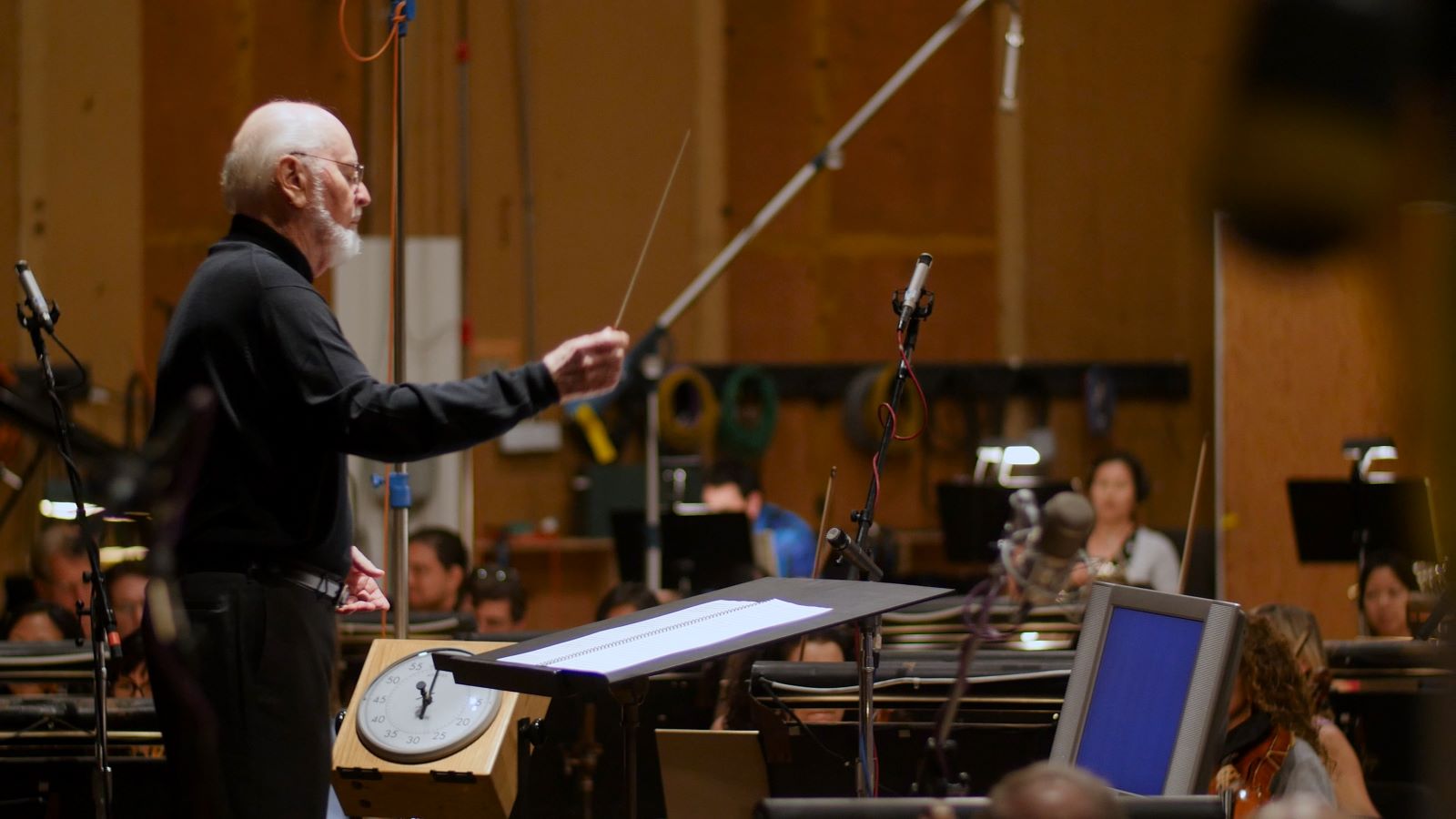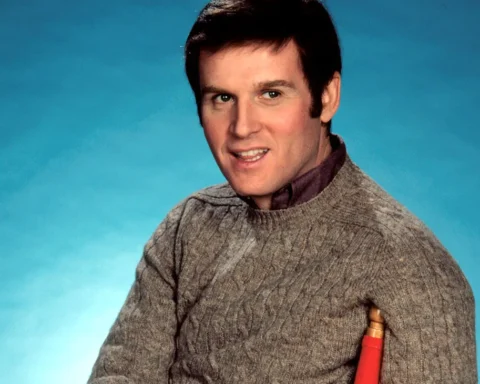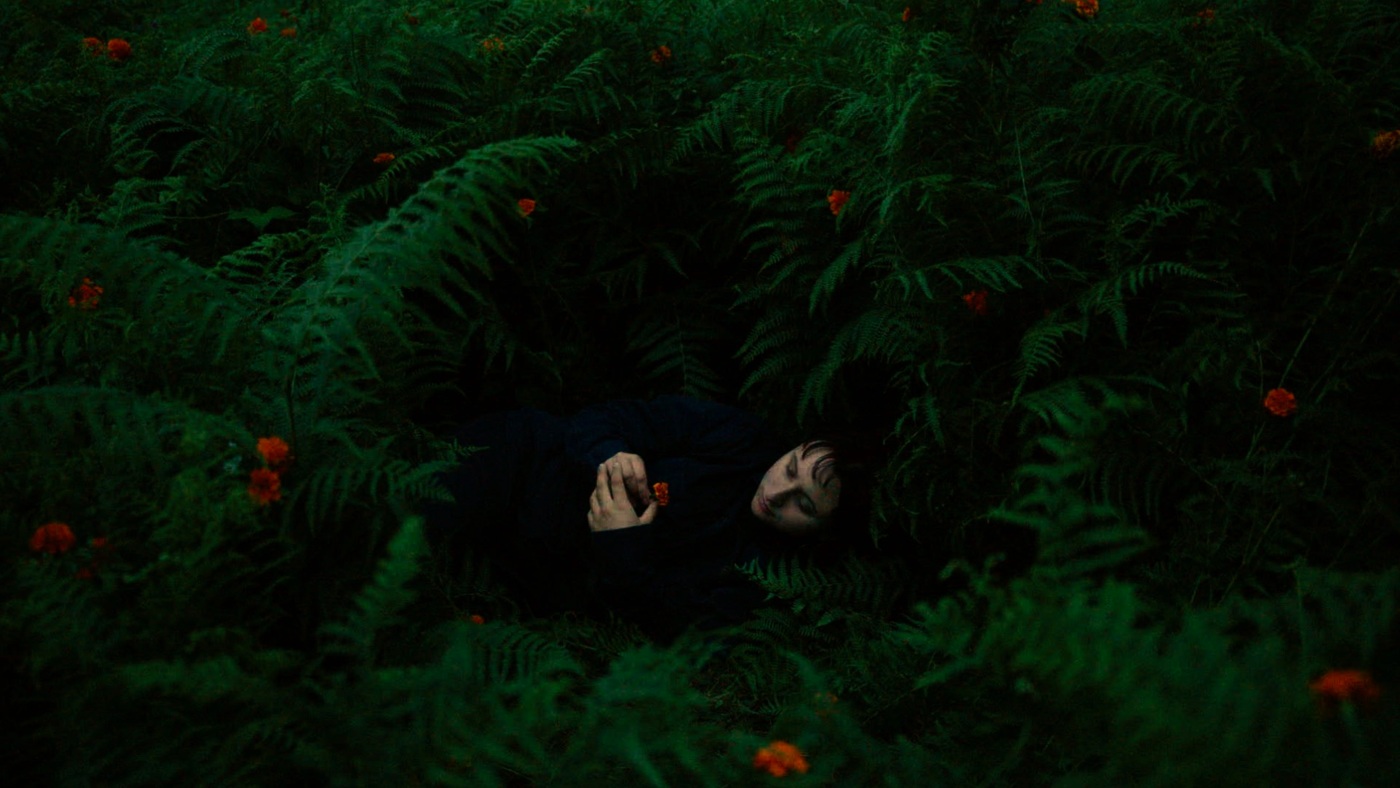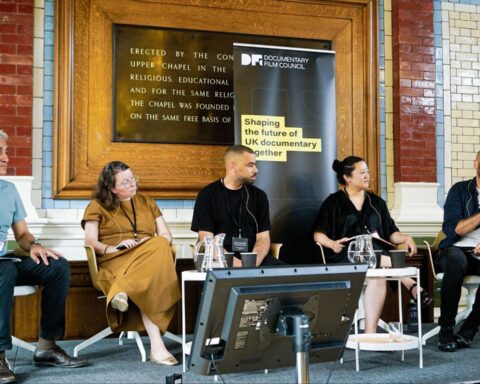Music by John Williams
(USA, 105 min.)
Dir. Laurent Bouzereau
For generations of movie fans, the name John Williams is synonymous with film music. The composer’s themes and motifs are both iconic and inexorably linked to the movies that helped birth them, from the two-note ostinato that gives Jaws much of its menace, the sweeping fanfares that accompany Indiana Jones and Superman, through to the Korngold-inspired opening anthem of Star Wars. Williams has put pencil to paper for over seven decades, crafting melodies that define more than a half-century of film-going, making his 92nd year sharing the planet with cinephiles as good a time as any to celebrate his artistry.
Music by John Williams, from director Laurent Bouzereau (Faye) is an unapologetically celebratory look at the maestro’s life and career over decades. With an address book that includes many of the most successful filmmakers of all time, the film manages to both sate fans with moments that surprise, as well and introduce more fitfully younger generations, as well as audiences in the future, to the man behind many remarkable scores.
Like Williams, director Bouzereau has made a career working closely with Steven Spielberg, responsible for numerous behind the scenes documentaries and other supplements usually relegated to “special features” on various home theatre releases. It be easy to dismiss the film as nothing more than a hagiographic look at Williams with a smattering of clips from his various successes, along with a slew of talking-head interviews to interject along the way, and superficially, that’s what the film formally presents. What’s perhaps unique here is that Williams seldom takes the spotlight, making his own reflections of a remarkable career all the more important if for nothing else than firming up his legacy with the inclusion of his own perspective.
New interviews with Spielberg, George Lucas, J.J. Abrams, Kathleen Kennedy, and Ron Howard are, of course, welcome, but the inclusion of the likes of Yo-Yo Ma and Branford Marsalis makes this documentary more than simply a discussion about his movie scores. In fact, it’s that classical aspect of his career, tracing his start as a jazz pianist and session musician, which may most surprise even long-time fans of his popular scores. Anyone who has heard his absolutely stunning syncopated score for Catch Me If You Can will realize the deep musical legitimacy of Williams’ ability to mine this aspect of musical form, making this supposed shift from the Wagnerian and Holstian bombast all that more understandable within his musical breadth.
There are also some fascinating connections to Canada. Back in the early 1950s, Williams was in the air force stationed at Fort Pepperrell in St. John’s, Newfoundland, as a member of the band both playing piano and assisting with orchestration and sheet music management. He was asked at that time to score a bit of nationalist propaganda, a short film made by European filmmakers to highlight some of the natural beauty and cultural delights of life in Newfoundland. After researching local melodies and folk tunes, he scored his first film, fittingly titled You Are Welcome, starting off a career that would result in 48 Oscar nominations and five wins(!), millions of records sold, major conducting gigs, and a prolific career unmatched by his contemporaries.
Not every moment is so sunnily told, and both the sudden death of his first wife, Barbara, as well as his decision to quit (and then return to) the Boston Pops is given some attention. While plenty of consideration is given to the many musicians who brought his music to life, from the famous London Symphony sessions to other collaborators, perspectives from artists who assisted Williams, such as William Ross or Conrad Pope, would have provided welcome detail into detailed facets of William’s conducting and orchestration.
In so many ways, Williams is the last of a direct line of classic Hollywood composers who had a full symphony at their regular disposal, and, save for a few notable exceptions, he remains unique with his relatively paltry use of electronic augmentation. The analogue nature of even his composition, putting lead pencil to staff paper, is warmly laughed at by the man himself, decrying the need to write note after note when a simple MIDI system could easily capture whatever flourishes he plays on the Steinway grand piano he’s had in his office for decades.
There are plenty of clips from the Lucas/Spielberg slate and given that the film is a presentation of Lucasfilm and produced by Spielberg, this shouldn’t be such as shocker. However, the sweep of Williams’ career makes for the most interesting and surprising elements, from his piano playing on numerous 1960s’ TV themes and scores, through to his earlier film work, his bold concertos, and his decades-long association with Tanglewood, which hosts the Boston Symphony Orchestra each summer. This enormous breadth of skills and opportunities inevitably reminds one of another iconic 20th century musical talent, Leonard Bernstein, whose career Williams has echoed in various ways.
While Bernstein craved the gravitas and acceptance the classical music world bestowed on its composers, Williams comes at things from the other direction. He’s immediately embraced by those who recognized his narrative compositional skill, but eschewed by a generation of earlier performers who felt that the disposable and manipulative nature of a film score hardly raised composition to the level of orchestral composers. Now, with many generations of orchestra members schooled on and deeply inspired by Williams and his work, even the stodgy world of the concert hall has managed to fully embrace this most legendary of musicians.
With Bouzereau’s film, we are welcomed to share in the massively consequential works of this maestro, embracing in unapologetic ways the joy felt while Williams has managed time after time to craft melodies likely to be as immortal as cinema itself. Given how much he has contributed to the soundtrack of just about all of our lives, from the deeply moving to the rousing or simply stunningly beautiful, it’s a wonderful thing indeed, through the celebration of Music by John Williams, to be engaged in such uninterrupted fashion with an unabashed celebration of the man and his art.












